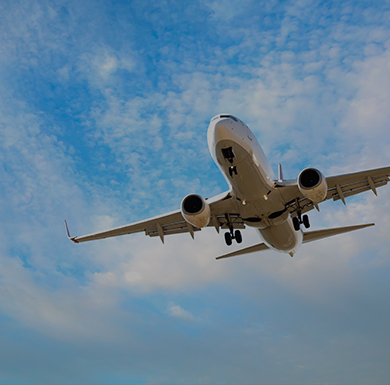
Did you receive a letter stating that the FAA is unable to establish your medical eligibility? This language is not particularly a cause for alarm. The FAA may conduct a reexamination of your eligibility to hold a medical certificate pursuant to 14 C.F.R. §67.413. This regulation authorizes the FAA’s Office of Aerospace Medicine to request additional medical information whenever the Administrator finds that such information is necessary to determine whether you meet the medical standards required to hold a medical certificate.
In a “reexamination letter,” the FAA typically includes boilerplate language to state “we are unable to establish your eligibility to meet the medical standards prescribed in Title 14 of the Code of Federal Regulations (CFR), Part 67.”
Why would the FAA be unable to establish your medical eligibility? For the most part, if you report a medical condition that could lead to an aeromedically significant concern, the FAA will ask for medical records pertinent to that condition. Just because the FAA asks for records, however, doesn’t mean your medical application will be denied or revoked. For the most part, the FAA’s disposition of their review of your records will be dependent on what is in your records, how the records are presented, and whether the underlying condition is disqualifying (or if you are taking a disqualifying medication). It is always advisable to have a FAA medical attorney review your records prior to submission, and properly strategize as to what could be submitted to further support your eligibility.
What types of records should be submitted to the FAA? It depends. If the FAA’s request for records is not “necessary” pursuant to 14 C.F.R. §67.413, there may be an argument made to the FAA that such a request should be rescinded. On the other hand, there are some things, such as the FAA requesting a drug test within 48-hours, which is usually non-negotiable. Beyond that, if your records reveal a concern for other previously unreported issues, such as substance use, diabetes, criminal history, etc., or anything which may reveal that you have not provided accurate answers on your previous applications for medical certification, you may want to take action to supplement your submission. In other words, sometimes, it pays to give the FAA more than what they ask for, in order to explain or alleviate concerns which appear in your medical records.
If you have received a letter stating that the FAA is unable to establish your medical eligibility, you need to contact a FAA medical attorney. Having an FAA medical attorney assist you with your submission can allow you to maximize review of your records and strategize as to the best approach for obtaining your medical certificate. Your FAA medical attorneys at The Ison Law Firm are standing by to help you with your FAA medical eligibility.
Contact the Aviation Lawyers from The Ison Law Firm Aviation Lawyers for Help Today
You need both a pilot and a lawyer on your side for your aviation law needs. Don’t hesitate to contact our team from The Ison Law Firm Aviation Lawyers to schedule a confidential consultation with an experienced aviation lawyer today.
We’re pilots representing pilots. The Ison Law Firm Aviation Lawyers offers FAA enforcement defense and medical certification representation worldwide!
The Ison Law Firm Aviation Lawyers
Phone: Toll-Free 855-322-1215
Office Hours: Mon – Thu, 9:00 AM to 5:00 PM
Fri, 9:00 AM to 12:00 PM
Disclaimer: Messages left for attorneys after these business hours will be addressed the following business day, during business hours.

